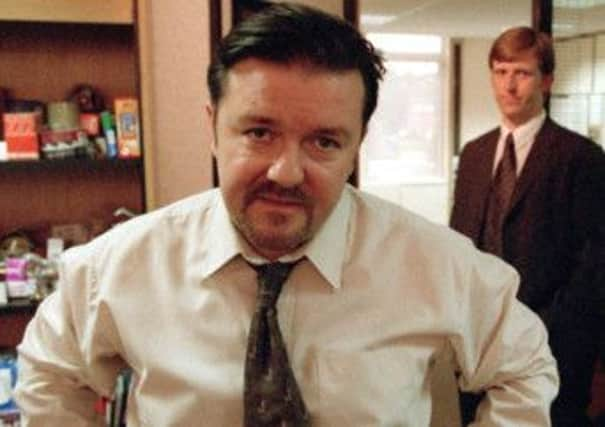Inane office jargon that overshadows our fluorescent-lit days


The full stop is not something I ever thought I had particularly strong feelings about. Useful, yes. Something that could inspire vehement loyalty? Probably not.
But then, one day, I started working with a boss who thought them redundant, finishing, instead, every email (and email subject line) with a baffling EOM (end of message).
Advertisement
Hide AdAdvertisement
Hide AdI’m unsure if EOM-ing appeared only in emails, or if it made its incomprehensible way into other forms of prose. Because being so busy heading off to “breakout areas” to “synergise” and “imagineer”, she never actually had the time to produce anything longer than a 10-line email.
Being bombarded with inexplicable “management speak” is now a common occurrence for the modern office worker. To most, it’s a pointless irritation and someone who knows this more than most is Steven Poole, journalist and author of Who Touched Base in My Thought Shower?: A Treasury of Unbearable Office Jargon. The book is the result of an online article Poole published in April on the inanity of management speak.
“Within hours, there were thousands of comments from frustrated office workers offering examples of their own pet verbal hates,” he recalls.
So why, if we all resent it, do we allow it to continue? Poole thinks it might be that in an ever-competitive job market we use jargon to make us appear to be “in the know”.
Advertisement
Hide AdAdvertisement
Hide Ad“Perhaps everyone is scared that if we don’t speak the same way, no-one will take them seriously,” he says. So if you innocently talk of “doing” something instead of “actioning” it, or ask someone if they’re free for a quick chat rather than sending a request “to diarize about touching base”, you could be in danger of appearing old-fashioned and out of touch.
We’re also the generation that likes to upscale our lives. Social media now means even watching telly is #relaxationtime, so when asked how we spent our day at work, we shudder at the idea of admitting we sent a few emails then unpacked the stationery order. No. We interfaced with stakeholders and hypervised the office collateral.
Poole wisely points out it can’t be coincidence that many jargon phrases stem from the action-fuelled worlds of the military (“on my radar” and “strategy”, for example) and sport (“deep dive” and “close of play”). “A lot is engineered to jolly its targets along by making fluorescent-lit days sound more exciting and important,” he says.
And he fears this “jolly” jargon can mask darker leanings. “Management language tends to dehumanise workers,” he says. “It also obscures management responsibility for things and dreams up euphemisms for sacking people – like resizing.”
Advertisement
Hide AdAdvertisement
Hide AdThis is true. But back to a more hopeful note. Perhaps another reason for our use of jargon is simply that it’s human nature to want to expand our vocabulary.
Take, as an (admittedly lofty) example, Shakespeare and his coining of words like puking and bedazzled. Or remember that every year, on average, around 1,000 new entries are added to Oxford Dictionaries Online.
If “twerking” can make the 2013 list, surely “moof” (translation: mobile and out of office) shouldn’t be too far behind?
Behind all the hypothetical discussions of why office jargon is so popular though, one hard fact remains: it is not going away.
Advertisement
Hide AdAdvertisement
Hide AdSo even if you can’t bear to embrace it, perhaps it’s still safest to learn, with a few helpful examples from Poole’s book, what everyone in your next meeting is actually talking about.
Circle back: A passive-aggressive avoidance strategy. When people can’t be bothered to make a decision, they suggest that everyone circle back to it later.
Move the needle: An actual human being has said: “I thrive in situations where marketing can move the needle.” Sadly, it just means your product will be better than others. That’s not as pointy, and so much more boring.
Bleeding edge: In the dynamic modern office, it seems “cutting edge” is no longer, er, cutting edge. The blade has been blunted. No, what you now need is a bleeding edge.
Advertisement
Hide AdAdvertisement
Hide AdBoil the ocean: This can be good or bad. When it’s bad, it just means you’re wasting time, the thinking being that boiling the ocean would take a very long time. On the other hand, boiling the ocean is good for exactly the same reason: you are attempting something very difficult, a fine and heroic thing to do.
Who Touched Base in My Thought Shower?: A Treasury of Unbearable Office Jargon by Steven Poole is published by Spectre, priced £9.99. Available October 30.